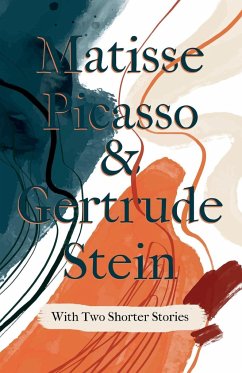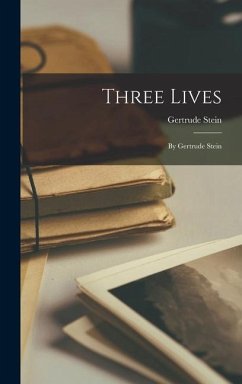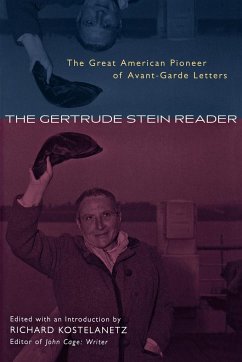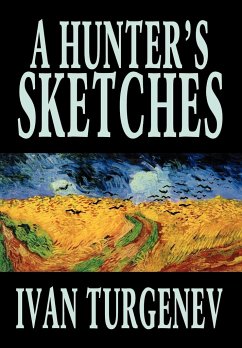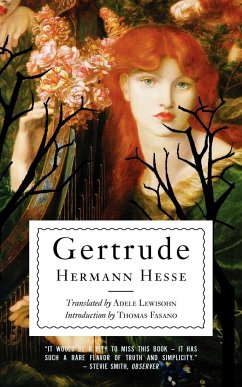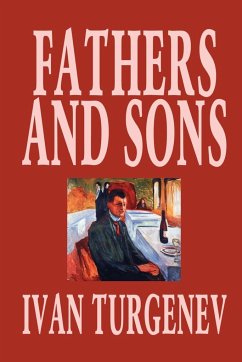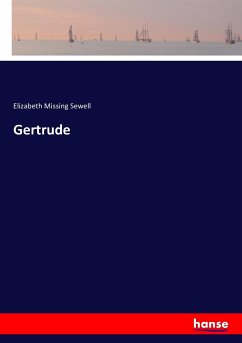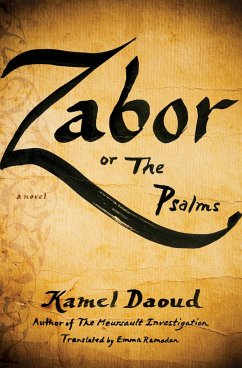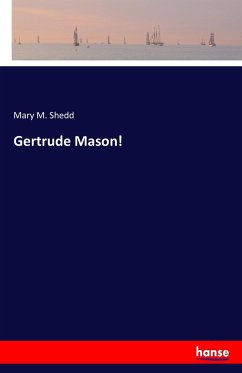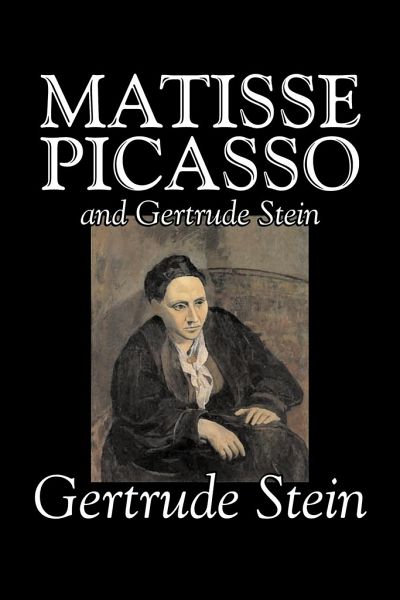
Gertrude Stein
Broschiertes Buch
Matisse, Picasso and Gertrude Stein by Gertrude Stein, Fiction, Literary
Versandkostenfrei!
Versandfertig in 1-2 Wochen

PAYBACK Punkte
9 °P sammeln!




Gertrude Stein is best known for the quote, "A rose is a rose is a rose is a rose." She was an early 20th century writer whose work mirrored the experimentalism of the Cubist art movement. "A Long Gay Book" (the novella that opens this volume -- a novella so substantial that it could well fill a volume by itself) is written in the stream-of-consciousness style that Stein helped to make famous.
Gertrude Stein (1874 - 1946) was an American novelist, poet, playwright and art collector. Born in the Allegheny West neighborhood of Pittsburgh, Pennsylvania and raised in Oakland, California, Stein moved to Paris in 1903 and made France her home for the remainder of her life. She hosted a Paris salon, where the leading figures of modernism in literature and art, such as Pablo Picasso, Ernest Hemingway, F. Scott Fitzgerald, Sinclair Lewis, Ezra Pound, Sherwood Anderson and Henri Matisse, would meet. In 1933, Stein published a quasi-memoir of her Paris years, The Autobiography of Alice B. Toklas, written in the voice of Alice B. Toklas, her life partner and an American-born member of the Parisian avant-garde. The book became a literary bestseller and vaulted Stein from the relative obscurity of the cult-literature scene into the limelight of mainstream attention. Two quotes from her works have become widely known: "Rose is a rose is a rose is a rose" and "there is no there there", with the latter often taken to be a reference to her childhood home of Oakland, California. Her books include Q.E.D. (Quod Erat Demonstrandum) (1903), about a lesbian romantic affair involving several of Stein's female friends, Fernhurst, a fictional story about a romantic affair, Three Lives (1905-06) and The Making of Americans (1902-1911). In Tender Buttons (1914), Stein commented on lesbian sexuality. Her activities during World War II have been the subject of analysis and commentary. As a Jew living in Nazi-occupied France, Stein may have only been able to sustain her lifestyle as an art collector and indeed to ensure her physical safety, through the protection of the powerful Vichy government official and Nazi collaborator Bernard Faÿ. After the war ended, Stein expressed admiration for another Nazi collaborator, Vichy leader Marshal Pétain.
Produktdetails
- Verlag: Aegypan
- Seitenzahl: 260
- Erscheinungstermin: 1. Januar 2007
- Englisch
- Abmessung: 229mm x 152mm x 16mm
- Gewicht: 427g
- ISBN-13: 9781603120395
- ISBN-10: 1603120394
- Artikelnr.: 22712909
Herstellerkennzeichnung
Libri GmbH
Europaallee 1
36244 Bad Hersfeld
gpsr@libri.de
Für dieses Produkt wurde noch keine Bewertung abgegeben. Wir würden uns sehr freuen, wenn du die erste Bewertung schreibst!
Eine Bewertung schreiben
Eine Bewertung schreiben
Andere Kunden interessierten sich für


